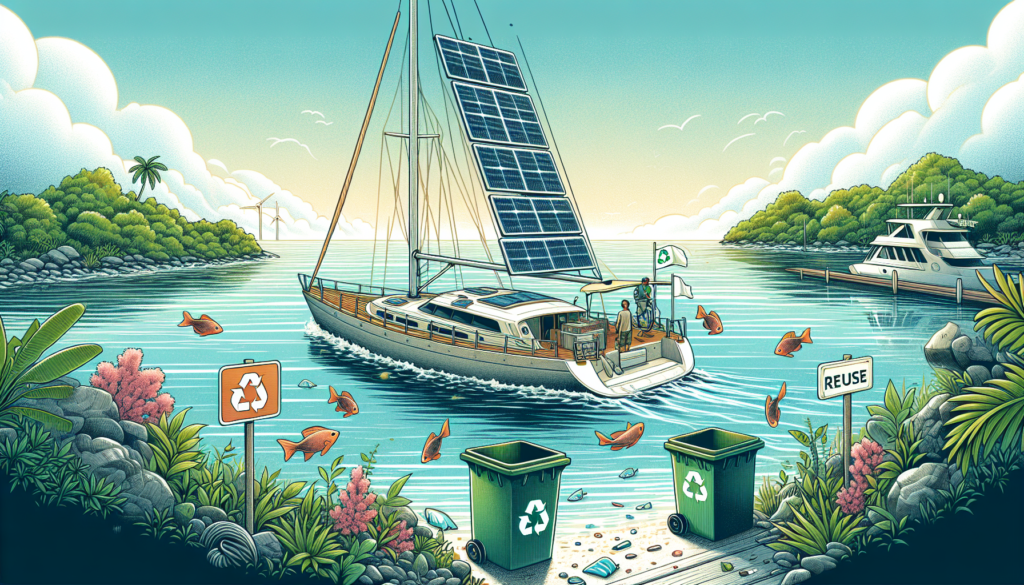Eco-Friendly Boating Practices: Navigating Towards a Sustainable Future
As we sail into the future, the impact of human activities on our environment has become increasingly evident. From the air we breathe to the water we traverse, every action we take has a consequence. In the realm of boating, where the thrill of adventure meets the serenity of the open water, it is crucial to consider the ecological footprint we leave behind. This article delves into the world of eco-friendly boating practices, exploring how we can enjoy the beauty of our waters while safeguarding the delicate ecosystems that call them home.
The Importance of Eco-Friendly Boating
Boating is not just a recreational activity; it is a way of life for many. Whether we are sailing, fishing, or simply enjoying the tranquility of the water, our love for the sea runs deep. However, this love comes with a responsibility to protect and preserve the marine environment. Eco-friendly boating practices are essential to ensure that our oceans, rivers, and lakes remain vibrant and healthy for generations to come.
But why is eco-friendly boating so important? The answer lies in the fragile balance of marine ecosystems. From coral reefs teeming with life to estuaries rich in biodiversity, our waters are home to a vast array of plants and animals. Any disturbance to this delicate balance can have far-reaching consequences, impacting not only marine life but also human communities that depend on the sea for sustenance and livelihood.
Choosing the Right Vessel
When it comes to eco-friendly boating, the first step is choosing the right vessel. Opting for a boat that is fuel-efficient and powered by clean energy sources can significantly reduce your carbon footprint. Electric boats, for example, produce zero emissions, making them an environmentally friendly choice for eco-conscious boaters.
In addition to the type of vessel, the size of the boat also plays a crucial role in its environmental impact. Larger boats require more fuel to operate, resulting in higher emissions of greenhouse gases. By selecting a smaller boat that is well-suited to your needs, you can minimize your impact on the environment while still enjoying all the pleasures of boating.
Reducing Fuel Consumption
One of the most effective ways to practice eco-friendly boating is to reduce fuel consumption. There are several strategies you can employ to achieve this, such as maintaining your engine properly, avoiding idling, and planning your routes efficiently. By adopting these practices, you can not only save money on fuel but also contribute to a cleaner and healthier marine environment.
Another way to reduce fuel consumption is to embrace the power of wind. Sailing is a time-honored tradition that allows boaters to harness the natural energy of the wind to propel their vessels. By incorporating sailing into your boating trips, you can significantly decrease your reliance on fossil fuels and minimize your carbon footprint.
Proper Waste Management
Proper waste management is essential for eco-friendly boating. The marine environment is highly sensitive to pollution, and even small amounts of waste can have a significant impact on water quality and marine life. To reduce your environmental impact, make sure to dispose of trash properly and avoid throwing any garbage overboard.
Additionally, it is important to be mindful of the products you use on your boat. Many conventional cleaning products contain harmful chemicals that can contaminate the water and harm marine life. Opt for eco-friendly alternatives that are biodegradable and non-toxic to minimize your impact on the environment.
Protecting Marine Life
One of the joys of boating is the opportunity to observe and interact with marine life. However, it is crucial to do so responsibly to avoid causing harm to the animals and their habitats. When boating in areas known for their rich biodiversity, such as coral reefs or marine sanctuaries, be sure to follow all regulations and guidelines to protect these sensitive ecosystems.
Avoid disturbing or feeding wildlife, as this can disrupt their natural behavior and lead to negative consequences for their health. Keep a safe distance from marine animals and refrain from approaching them too closely. By respecting the boundaries of marine life, you can ensure that they thrive in their natural environment.
Investing in Sustainable Practices
Investing in sustainable practices is a key aspect of eco-friendly boating. From solar panels to wind turbines, there are a variety of renewable energy options available for boaters looking to reduce their environmental impact. By incorporating these technologies into your vessel, you can lower your carbon footprint and set an example for others to follow.
Another way to invest in sustainability is to support environmentally conscious businesses and organizations. Look for eco-friendly marinas that prioritize conservation and sustainability in their operations. By patronizing these establishments, you can help promote a culture of environmental stewardship within the boating community.
Conclusion
To wrap things up, eco-friendly boating practices are not just a trend; they are a necessity in today’s world. As we navigate the waters of our planet, it is our responsibility to do so with care and consideration for the environment. By choosing the right vessel, reducing fuel consumption, practicing proper waste management, and protecting marine life, we can make a positive impact on the health of our oceans, rivers, and lakes.
As boaters, we have the power to shape the future of our marine ecosystems. Let us embrace the challenge of eco-friendly boating and work together to create a sustainable and thriving environment for all who call the water their home.



